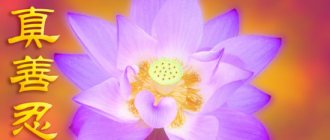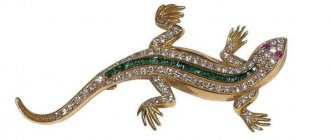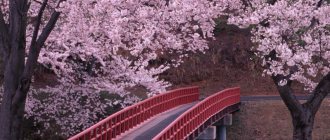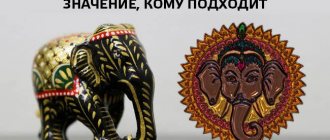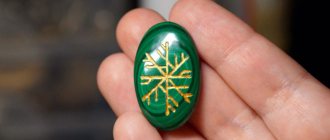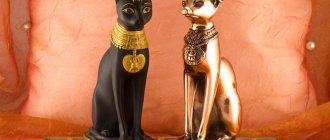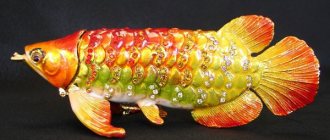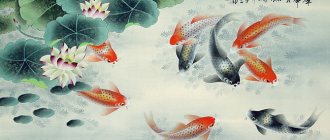| — Greek . ———— An ancient sign of fertility, abundance (Saracen brides wore it as a sign of fertility). Orange (orange) color is associated with fire and luxury (Except in Buddhist countries, where the orange robes of monks symbolize humility). Basic values:
|
China
Yuji is a fruit that brings happiness - a symbol of immortality and good luck.
At the beginning of each year, oranges were brought as a gift to heaven. For this purpose, fruits were sent annually from Fuzhou to Beijing. The tradition of giving oranges for the New Year means a wish and a guarantee of wealth, happiness and success. They are traditionally eaten on the second day of Chinese New Year.
The image of two oranges, two fish in a basket means a wish for happiness every year.
Orange is well known in China, where several types of orange trees grow:
- tangerine, or citrus nobilis;
- a variety with an easily peeled peel, "blood orange", a name suggestive of alchemy, immortality and luck;
- coolie, or citrus aurantium, grows in southern China;
- golden orange, citrus olivoeformis, usually preserved;
- Wenchow orange, a variety with a bitter quinine flavor;
- copt ch'ou ch'eng also has a bitter taste$
- several varieties of citrus decumana, the best of which are grown in Atou.
The taste and golden-yellow zest of the fruit are highly valued. Pharmacists buy it from the population and widely use it to prepare medicines: tincture of the zest serves as a sedative, carminative and expectorant, and promotes digestion. The dried pulp and seeds of the fruit are also used for medicinal purposes.
Root crown
The green rue crown was the traditional symbol of the Saxon dukes and Saxony itself. After the establishment of the Wettin dynasty in the duchy, they adopted this symbol into their coat of arms. Rue itself in Western Europe symbolized innocence, purification, and was used to flavor holy water in churches. Rue was also believed to have the ability to ward off evil spirits and was used in protective rites
Coat of arms of the federal state of Saxony, Germany
Emblematics
Orange tree in a box illuminated by the sun.
- Without you I'm dying.
A symbol of the primacy of the divine will, sometimes the overlord.
EMSI 4-14, p.123 Orange tree covered with flowers and fruits.
- Winter will not bare my branches.
A symbol of the fact that the vicissitudes of fate do not harm virtue.
EMSI 23-6, p.200] An orange tree covered with flowers and fruits.
- It promises and fulfills.
A symbol of someone who strictly keeps their word.
The orange tree bears flowers and fruits at the same time: fruits are the fulfillment of promises. EMSI 30-3, p.227 Orange tree covered with fruits and flowers.
See 23-6 EMSI 54-13, p.335]
Orange in heraldry
Coat of arms of the Orange Republic. This state received its name from the Orange River flowing in South Africa, in turn named after the Prince of Orange
Coat of arms of the French Duchy of Orange, the name of which is translated from French as “orange”
Coat of arms of Oranienbaum (now Lomonosov), the name of which is translated from German as “orange tree”
In Ancient Greece, the fruit of this tree became an attribute of the goddess Diana. In Christianity, this plant was sometimes associated with the biblical Tree of Knowledge. Orange was an attribute of the Virgin Mary, symbolizing purity, chastity and virginity. Sometimes this fruit was depicted in the hand of the baby Jesus as a symbol of God's atonement for the sins of mankind. The bitter orange, which was popular in Europe until the 15th century, when the Portuguese introduced sweet varieties of orange, became a symbol of fate and fate.
MYTHOLOGY
As a symbol of fertility , the orange has long been associated with love and marriage. According to legend, the orange was the “golden fruit” that Juno gave to Jupiter on her wedding day. Greek myth tells that Hera received a tree with golden apples as a wedding gift from Mother Earth - Gaia. These golden apples grew in a garden in the far west, which was guarded by the daughters of Night - the Hesperides. According to another version, Gaia gave golden apples to Zeus when he married Hera.
Three golden apples are picked by Aphrodite in the grounds of the temple dedicated to her in Cyprus and given to the young man Hippomenes, responding to his prayer. A young man in love with Atalanta can only marry her by defeating her in a race; meanwhile, no one has yet managed to overtake the girl. On the advice of Aphrodite, the young man, whom Atalanta begins to catch up with, throws a golden apple and Atalanta, surprised by the unusual fruit, stops to pick it up. A technique used three times allows Hippomenes to run first and marry his beloved.
“The three golden apples are three extra months added to the octaeteris (eight-year cycle) to keep the Moon in rhythm with the seasons of the solar year. They fall at Atalanta’s feet every time it seems that she is about to overtake Hippomenes, who personified the Sun. The number of apples means that the Moon will marry the Sun at the end of the eight-year cycle, which it actually does. In the earliest version, the octaeteris - 99 lunar months - lasted slightly longer than 8 years of 365 days each. This small discrepancy, about half a day, is the distance by which Hippomenes overtook Atalanta.”
On about. Sardinia, when the groom’s father sent carts to collect the bride’s dowry, “bouquets of flowers or oranges were attached to the horns of the oxen harnessed.” A clear example of the distortion of original ideas is the carnival character su tiaulu (devil, devil) with an orange. In Christian iconography, the devil was sometimes depicted with oranges strung on horns, wearing a fiery red close-fitting robe , a black mask and a tail.
The custom of decorating the bride with orange flowers (orange blossom) came to England from France around 1820. The orange tree is also used in place of the apple or fig tree when depicting the fall of man in paradise.
Used materials:
- Apollodorus, Mythological Library;
- Edwin K. Krapp. Astronomy. Legends and traditions;
- ON THE. Krasnovskaya. Origin and ethnic history of the Sardinians;
- John Foley. Encyclopedia of signs and symbols.
Similar articles
- Apricot
- Quince
- Acacia. Part 1
- Acacia. Part 2
- Acacia. Part 3
- Alchemical tree
- Orange. Part 1
- Orange. Part 3
What properties does wood have according to Feng Shui?
By placing a living symbol of good luck in a living room, you can achieve different effects, depending on the type of plant.
In Feng Shui traditions, the orange tree is considered a symbol of gold. It can stimulate cash flows, providing wealth and stability to the home in which it grows. It is advisable to plant an orange in the garden, on the southeast side.
According to Feng Shui, tangerine trees are an unchanging symbol of happiness. A bush given as a gift has special power. Of course, you can be happy in poverty, but the mandarin, at the same time as happiness, attracts prosperity to your home. The tangerine plant is placed on the eastern side, since in this case not only the financial situation will improve, but also the health of family members.
Sakura is a traditional plant for followers of ancient eastern teachings. Its task is renewal, providing youth, love and beauty. Sakura placed in the southwestern sector of the garden will ensure marriage harmony.
Myrtle is a symbol of a prosperous family life. According to Feng Shui, the myrtle tree blesses a couple who have recently entered into a legal marriage. This is a great gift for the bride, as the myrtle tree prevents conflicts and makes life unusually calm, while strengthening the relationship between lovers.
According to Feng Shui, the peach tree symbolizes eternal life. Most often, peach is planted in an area with excellent natural light. In this case, you don’t have to worry about your own health, since longevity is considered assured. The wood of the plant is capable of driving away evil spirits from the house. A peach tree planted in the central part of a living space attracts prosperity.
Of course, in a city apartment it is difficult to ensure the correct growth of the bush so as not to scare away luck. Therefore, artificial compositions have become very popular as a decorative element and a way to get to know fortune better.
How to create a dollar tree using feng shui
Artificial decorative figurines with an abundance of coins on the branches really attract good luck.
But only if all conditions are met:
Today you can purchase a similar item in almost any souvenir shop. However, an artificial plant created with one’s own hands, into which a piece of the soul was invested, is more effective.
It’s easy to make a money tree using Feng Shui:
- The branches of the future talisman are made of thick twisted wire. To make the composition look presentable, it is recommended to wrap each “branch” with brown or green floral tape;
- The branches are twisted into a trunk, which is plastered and painted with acrylic compounds;
- A neat pot is filled with plaster or alabaster, into which the trunk of an improvised plant is placed;
- When the filler has hardened, you can begin the most important part - decorating the branches with coins;
- The money tree is traditionally decorated with Chinese coins, in the center of which there is a square hole. The more coins are used in the composition, the faster luck will turn to its owner;
- If it is not possible to purchase Chinese coins, you can use any coins by drilling holes in their central part yourself;
- Additional energy can be given to the figurine if you place a dragon figurine nearby or, on the eve of the new lunar year, hang red lanterns on the branches.
The Feng Shui lucky tree is ready and you can enjoy the fruits of your own handicraft. However, some people believe that such a craft is a dummy and only a living dollar tree can attract good luck.
What plants can attract good luck?
It is not necessary to plant an orange tree or tangerine to attract wealth and good luck. Most often, the common crassula, otherwise known as crassula, is used as a money plant, which must be planted with your own hands.
By the way, it is advisable to use a stolen sprout for planting. It is believed that in this case, a person, along with part of the krasula, takes away a piece of good luck from the house of his acquaintances.
Of course, this is a bit of a cruel rule, but you need your own well-being and rarely can anyone resist the temptation. However, it is not only theft that ensures the effectiveness of the money plant.
It should be planted according to all the rules of Feng Shui:
- The pot is filled with drainage and a few coins are placed on top of it. The coins are covered with earth;
- A pre-slightly dried crassula sprout is planted in the ground;
- When the sprout takes root, a small ritual is performed by tying a red ribbon to the tree.
Every day you should talk to the symbol of attracting good luck, ventilate the room. It is necessary to provide watering with water at room temperature when the soil in the pot dries out. If there is water in the pan, it is not advisable to water it. By the way, the talisman not only attracts money, but also predicts how financial affairs will go in the near future.
If happiness has not turned away from home, the fat woman quickly gains height and grows rapidly. If a streak of failures is expected ahead, the growth of the fat woman stops. On the eve of a major purchase, crassula may shed its leaves. In this case, you should support the talisman by providing proper care.
The dollar tree, a guarantor of happiness and financial stability, is slightly different from the fat tree. Zamioculcas has oblong, fleshy leaves. Crassula is capable of attracting financial success, Zamioculcas provides foreign exchange flow.
In addition, Zamioculcas is considered a symbol of female happiness, since during the flowering period it produces a sprout that is very reminiscent of a phallus in outline. Also, unlike Krasula, the Zamioculcas sprout must be given as a gift. Only in this case does cultivation make sense.
The main effect of the dollar talisman appears during the flowering period. It was at this time that a stream of dollars literally poured onto the owner of the Zamioculcas. The problem is that not even all flower growers succeed in achieving flowering. Zamioculcas does not tolerate bright sunlight, so it should be placed in the shade.
— An evergreen tree of the citrus genus of the rue family, a fruit plant. Only cultivated in tropical and subtropical zones. Upside down... Encyclopedic Dictionary
Orange
- M. Holland. tree and fruit of Citrus aurantiorum; sweet orange. He knows a lot about oranges. Enough with your rotten nose... Dahl's Dictionary
Orange
— Its juicy, aromatic, sweet and sour fruit has a soft orange peel. and 1 more definition
Ozhegov’s Dictionary
ORANGE
- Ah, genus. pl. oranges, m. Citrus juicy aromatic fruit with a soft orange peel. Orange, orange - referring... Dictionary of foreign words
orange
— Borrowed. from Holland appelsien, which together with new-century-n. Apfelsine, English-German appelsine, as well as new-in.-n. Chinaapfel, Sineser Apf… Vasmer's Etymological Dictionary
orange
- APPEL'IN, orange, man. (Dutch appelsina, lit. Chinese apple). Large, orange-colored, fragrant orange fruit... Ushakov’s Explanatory Dictionary
Orange
- In “Blue Cow” there is a way to show that you will spell the word through the names of countries.. and 1 more definition
Dictionary of youth slang
Orange Dynasty
The Orange-Nassau dynasty ruling today in the Netherlands established itself on the Dutch throne during the first bourgeois revolution in Europe, when at the end of the 16th century. The United Provinces, after a bloody struggle, freed themselves from the rule of the Spanish Habsburgs. Initially, the title of Orange belonged to the rulers of a small duchy in the south of France. Since the word “orange” is translated as “orange,” this fruit, as well as the color orange, became symbols first of the dynasty and then of the Netherlands.
Prince William I of Orange, Stadtholder of the Republic of the United Provinces.
Share link
The meaning of wood in the eastern feng shui system
In the Feng Shui system, it is necessary not only to take into account the correct arrangement of furniture and the layout of rooms in a house or apartment, but also to take into account additional elements, such as landscaping or the placement of various talismans around the perimeter. Of course, all this must be done according to the rules.
Today we will focus on home landscaping. The importance of trees in Feng Shui cannot be overestimated. Having them in your home promotes growth and change, so if you feel stagnant in any area of your life, get the right tree and change will come to you. If there are trees in the house, but there is still no comfort, then perhaps they are not positioned correctly.
In autumn, trees bear fruit, so your efforts will not be in vain. Be sure that with proper care and a harmonious combination of trees, you will be able to receive your fruits in the form of material or other benefits. Later in this article we will look at which trees can bring good luck and which wealth, and how to care for them.
Orange fruit and baths from it
Orange baths have been carried out by all kinds of beauties since ancient times. They were considered a very effective way to rejuvenate and become more beautiful. For this ritual you will need five oranges and five mint leaves. Draw a bath, add four mint petals and the juice of four oranges. After taking this bath, you must divide the remaining orange into two parts. One should be rubbed into the skin of the body, and the second should be eaten along with the remaining mint petal.
The meaning of tattoos for girls
Cleanliness and health - these are the associations that a girl’s tattoo in the form of a slice of orange or a bright slice of ripe fruit evokes. Colored designs in the New School style are in demand among young girls who follow fashion and prefer to decorate their bodies with eye-catching tattoos. Orange flowers, depicted next to pieces of citrus, denote the beauty of the soul, the freshness of feelings and sensations, inexperience and inexperience. Such tattoos reveal the naivety, sincerity of the owner, her desire to enjoy life and learn new things.
A pattern on the body in the form of an orange slice dripping with juice characterizes the girl as a lover of healthy drinks and natural juices. Such tattoos are often done in a watercolor manner, emphasizing the refreshing taste and beauty of the bright orange shades of the fruit. Tattoo owners love to pamper themselves with freshly squeezed juice and highly value the benefits of a vitamin drink.
Lemon tree: a symbol of knowledge and curiosity
Feng Shui lemon tree is very useful to keep in the house, especially if there are children in it. It promotes curiosity and also increases the desire for knowledge. In this regard, lemon can be placed in the children's room or where various activities take place. If your children need to increase their independence or increase their activity, then you will also need it.
In addition, the tree has powerful energy, especially during the period of flowering or fruit appearance. Lemon highlights it, protecting the home from various unfavorable factors that can enter the house. It should be noted that the larger the fruit, the better the protection.
Medicinal properties of lemon
And, of course, lemon has many healing properties. With just his presence, he helps to cure numerous ailments of those who live next to him. It has a particularly strong effect on the liver and blood, improving their condition.
Lemon will also help get rid of fear and depression, increasing a person’s vigor. This happens due to the release of essential oils into the air. At the same time, they kill harmful microbes, which improves the quality of this air.
